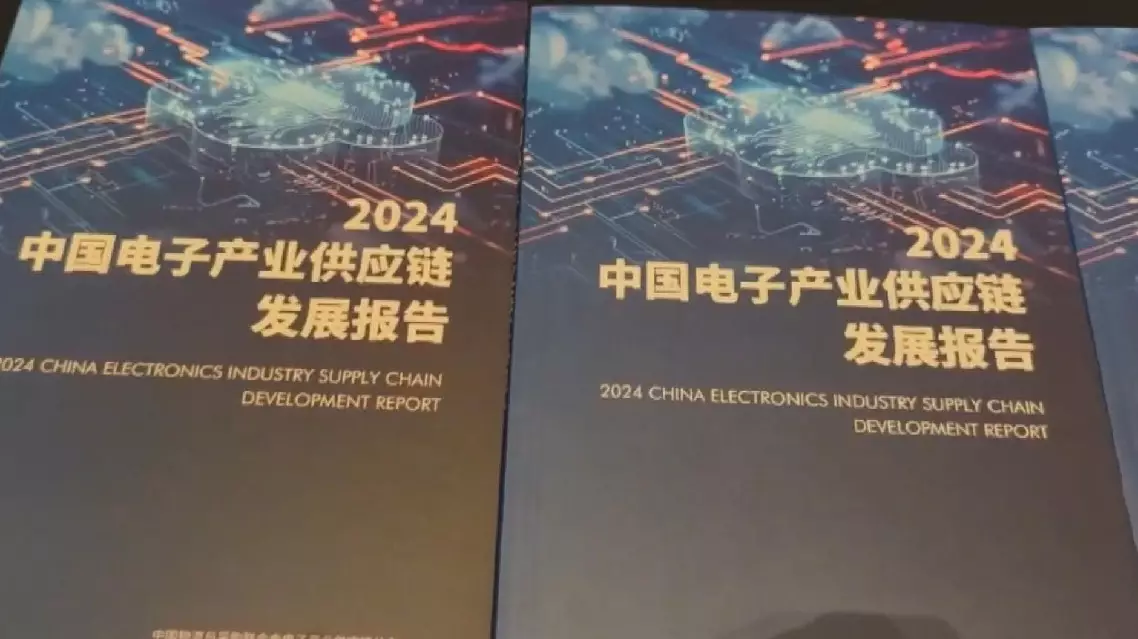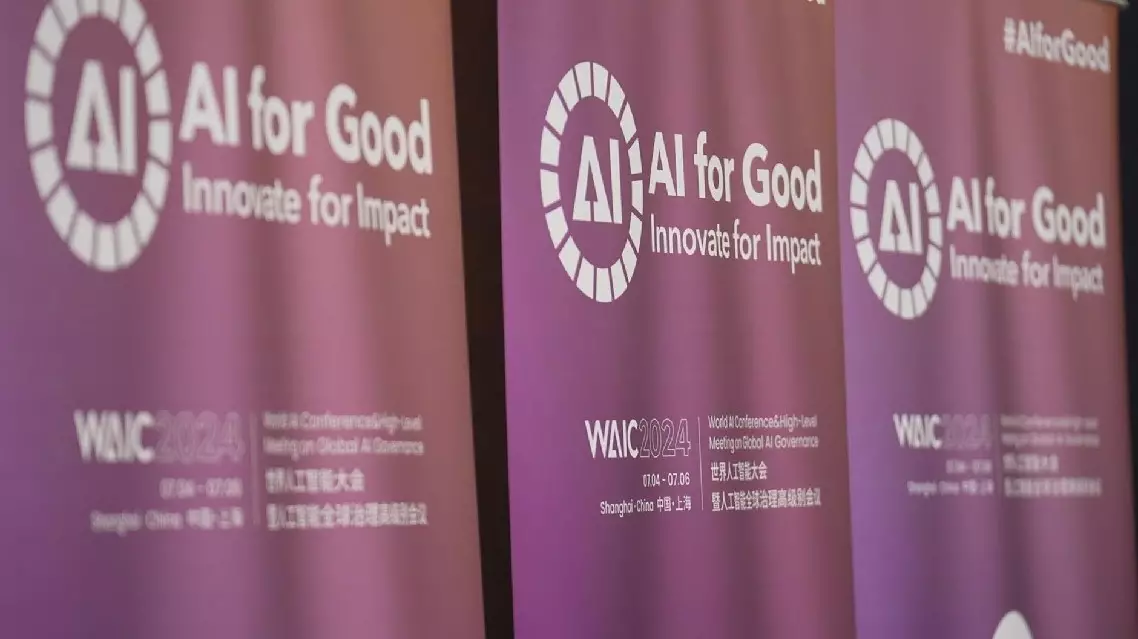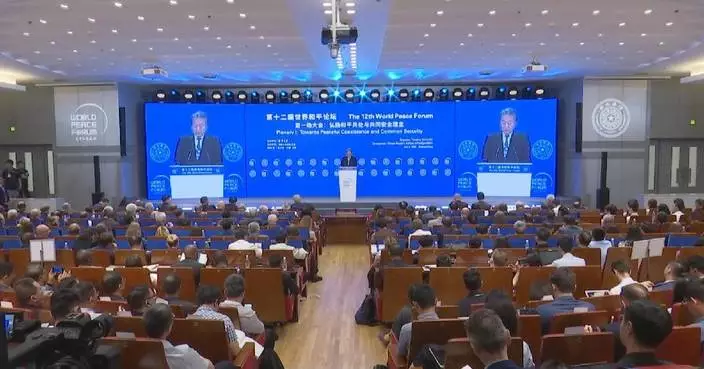China's electronic information manufacturing sector saw sustained market expansion last year, with digital intelligence innovation emerging as the core driving force for promoting the development of the electronics industry supply chain, according to the 2024 China Electronics Industry Supply Chain Development Report published on Thursday.
The report, released by China Federation of Logistics and Purchasing, highlights that the accelerated global progress towards informatization and digitalization has been boosting global demand for electronic information products. Coupled with the adoption of a series of favorable policies at the national level, China's electronic information manufacturing sector has undergone continuous expansion, leading to a year-on-year increase of around 17.26 percent in the number of related enterprises.
In 2023, the market size of China's electronics industry supply chain reached about 37.72 trillion yuan (around 5.19 trillion U.S. dollars), with about 41,200 enterprises in the electronic information manufacturing sector, according to the report.
Besides, the energy electronics and automotive electronics markets exhibit huge growth potential driven by the global transformation of the energy mix and intelligent development of the automotive industry.
According to statistics from the Electronics Industry Supply Chain Sub-council of the China Federation of Logistics and Purchasing, a total of 1,590 key projects were recorded in China's electronics industry supply chain in 2023.
Among them, there were 345 key projects in the energy electronics sector and 291 key projects in the automotive electronics sector, accounting for 21.7 percent and 18.3 percent respectively.
Furthermore, more than 90 percent of the key projects within the electronics industry supply chain in 2023 were centered around digital intelligence innovation, underscoring its role as the core driving force behind development of the electronics industry supply chain.
"Digital intelligent transformation refers to the process of in-depth integration and optimization by enterprises of all aspects of the supply chain by introducing advanced digital technologies, including the Internet of Things, big data, cloud computing, artificial intelligence, and 5G, to increase transparency and traceability of the supply chain, improve the operational efficiency of the supply chain, and reduce the operating costs of the supply chain," said Hu Dajian, assistant to the president of the China Federation of Logistics and Purchasing.

China's electronic information manufacturing sector registers sustained market expansion: report
Sci-tech industry insiders and experts at the World AI Conference (WAIC) 2024 in Shanghai shared their views on how to responsibly govern artificial intelligence (AI) technology and address the ethical concerns raised by its explosive development worldwide.
More than 500 companies participated in this year's event, showcasing over 1,500 of the most advanced technologies. It had many companies stating they are investing in AI to boost industrial development.
Gu Yue, vice president and head of marketing for Schneider Electric's China and East Asia Operations, highlighted the company's advancements in AI technology.
"We have already organized one AI hub in China working for this purpose, and then also to keep improving our AI engine, and also to develop those tools, those platforms to empower a customer, either to increase their productivity or to decrease their energy consumption," said Gu.
Since the first edition of the annual event in 2018, this year's WAIC is the first to emphasize AI safety and governance, as reflected in its theme --Governing AI for Good and for All."
The EU Act on Artificial Intelligence, passed in May of this year, became the first major regulation of new technology on the global stage. France is among the countries leading the way and has expressed willingness to work with China to manage risks.
The two countries released a joint declaration on AI and global governance during Chinese President Xi Jinping's state visit to France in May this year, with the aim to promote secure, reliable, and trustworthy AI.
"It's really important that we work together because in an ideal world, the objects that we create would be commons. So, it's good to have for instance, a Chinese AI with a Chinese large language model and a French AI with a French large language model. But if we do this, we're creating gaps between our societies. So, this is why we need those joint statements and working together to try to bridge the gap between our countries," said Gael Varoquaux, research director of the French National Institute for Research in Digital Science and Technology.
On Thursday, the opening session of WAIC 2024 saw the issue of a Shanghai Declaration on Global AI Governance, calling for global cooperation to achieve AI's full potential for the greater wellbeing of all humanity.
"If we lack a global perspective, we're going to have a new divide in AI, just like the digital divide in the past. An AI divide is going to do a lot of damage to our future productivity, to our entire labor market, and to human development as a whole," said Zhang Yaqin, dean of the Institute for AI Industry Research at Tsinghua University.
Regarding cooperating on AI governance, Zhang said it requires countries to communicate and reach a consensus on different issues, including red lines for safety and regulatory standards. He mentioned that China is cooperating with big countries, including the United States, as well as with developing countries to ensure no one is left behind.
There are about a dozen official documents giving detailed explanations of China's philosophy on AI governance.
The Global Security Initiative Concept Paper was released in February last year. It calls for stronger international security to govern AI and manage security risks.
In July last year, interim measures were announced to manage generative AI services, aiming for innovation and balanced development and security of new technologies.
The Global AI Governance Initiative was announced in October. It proposes a people-centered, open, fair, and efficient approach to AI development, security, and governance.

Shanghai AI Conference calls for responsible AI governance cooperation










